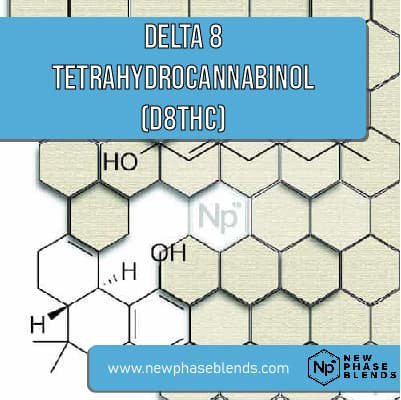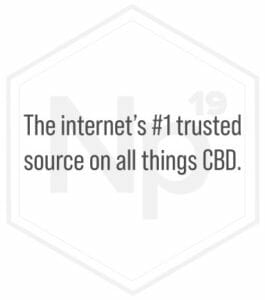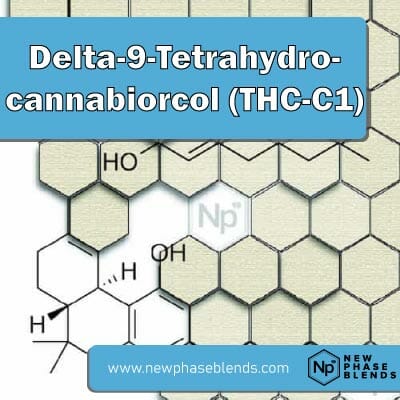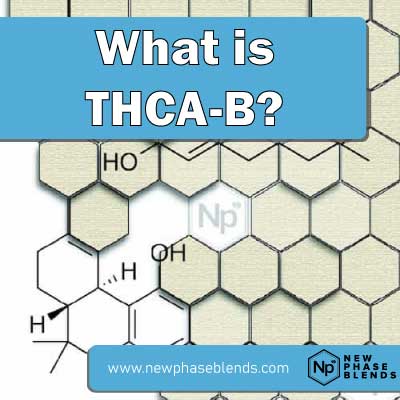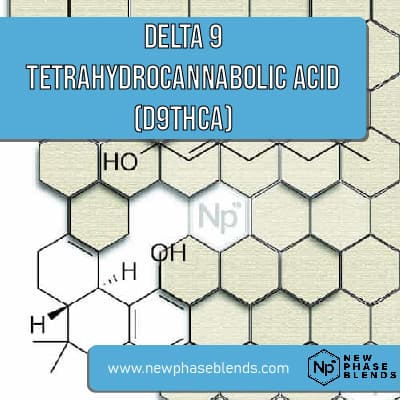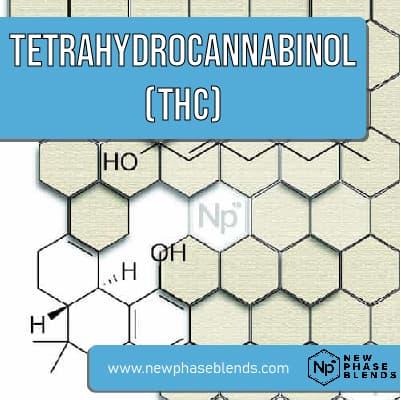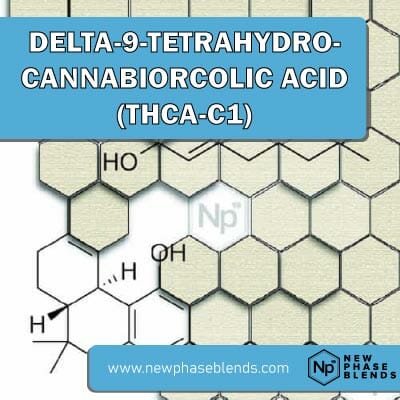Delta 8 THC has become quite the popular compound since people figured out that it is a legal way to get high. Closely related to delta 9 THC, delta 8 THC is a cannabinoid found in cannabis that is considered legal for use, and also gets people high – just like the controlled substance delta 9 THC. What is Delta 8? Why is it legal? We’ll answer these questions, and more, in this article all about d8 THC.
What is THC Delta 8 THC?
Most people are aware that THC Delta 9 (Tetrahydrocannabinol) is the most psychoactive cannabinoid in cannabis. Did you know there is another form of THC known as Delta 8 Tetrahydrocannabinol? Other names you may run into include: THC delta 8, D-8-THC, or Δ8-THC
Delta 8 is a milder psychoactive cannabinoid that is very similar to Delta 9 THC. While Delta-9-tetrahydrocannabinol (THC) is the most common compound known among cannabinoids, it is not the only psychoactive compound in the cannabis plant.
How is Delta 8 THC Different from THC Delta 9?
Having a lower psychotropic potency than regular THC makes D8-THC more suitable than the latter for use in the medical field.
Tetrahydrocannabinol was first discovered in 1969 at Weizmann Institute of Science Israel by Raphael Mechoulam and Yechiel Gaoni. Also very vaguely referenced, there were multiple forms of THC discovered at that time. Delta 8 THC and Delta 9 THC were the two prominent discoveries, though.
Delta 9 THC is formed in cannabis when Delta 9 tetrahydrocannabinolic acid (also known as THCA) is exposed to heat, in a process known as decarboxylation. However, THC Delta 8 forms a bit differently.
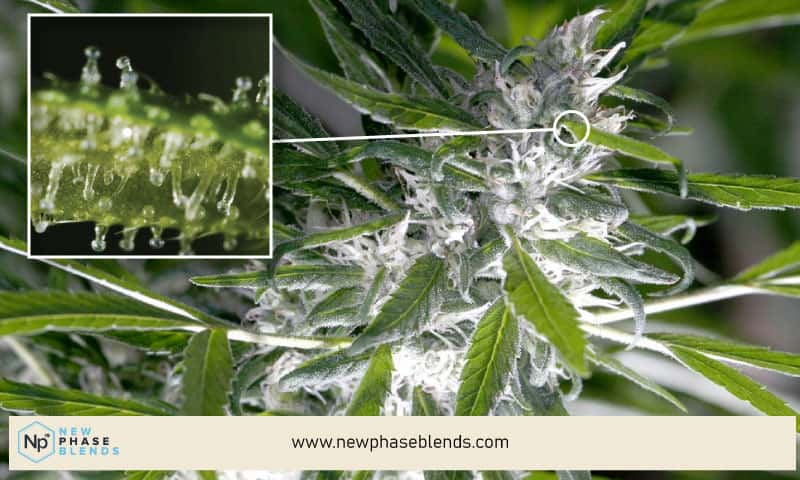
Unlike other cannabinoids, THC Delta 8 isn’t produced through decarboxylation. Neither is it created in cannabis plants by cannabinoid-synthesizing enzymes. Instead, it is formed as THC Delta 9 degrades over time.
The compound delta 8 THC exists as an analog of delta-9-THC, since they have a similar structure with only subtle noticeable differences. While these two compounds might have many similar possible therapeutic properties, like easing pain and nausea, or appetite stimulation (the munchies), D8-THC has a lesser psychoactive effect when compared to that of delta-9-THC.
Key takeaways when it comes to the differences between D8 and D9 THC:
- Delta 8 THC forms when THC Delta 9 in cannabis is stored for long periods.
- As an analogue of tetrahydrocannabinol, Delta 8 THC has an almost identical chemical make up to that of Delta 9 THC, minus a few atomic bonds
- Because Delta 8 THC only forms as regular THC degrades, only tiny amounts of the cannabinoid occur naturally in cannabis
Is Delta 8 THC Legal in the United States?
The legal status of Delta-8 THC in the United States is intricate and differs at both federal and state levels.
On a federal level, the 2018 Farm Bill authorized hemp and its byproducts, including CBD, as long as they possess no more than 0.3% Delta-9 THC. However, the bill did not explicitly discuss the legality of Delta-8 THC. In September 2021, the Drug Enforcement Administration (DEA) provided a clarification, stating that hemp-derived Delta-8 THC is not regarded as a controlled substance under federal law.
Despite this clarification offering some insight into the federal stance on Delta-8 THC, its legal status is ultimately subject to state laws and regulations. Laws concerning Delta-8 THC can differ significantly among states.
Some states permit the production, distribution, and use of Delta-8 THC under particular regulations, while others have explicitly prohibited it or enacted laws that render its sale and possession illegal.
To ascertain the legal status of Delta-8 THC in your specific area, it is essential to research your state’s laws and regulations.
Are There Benefits of Delta 8 THC?
There are a few studied benefits of Delta 8 (other than a legal way to get high). Here are some of those benefts:
- Milder psychoactive effects: Delta 8 THC provides a more manageable and less intense high compared to Delta 9 THC, making it suitable for users seeking a gentler experience.
- Anxiety reduction: Delta 8 THC may help alleviate anxiety, offering potential relief for those dealing with stress and anxiety-related issues.
- Pain relief: Delta 8 THC has shown potential analgesic properties, providing an alternative option for those seeking pain management.
- Antiemetic properties: Research has indicated that Delta 8 THC may be effective in reducing nausea and vomiting, particularly in cases related to chemotherapy treatments.
- Appetite stimulation: Delta 8 THC may help increase appetite, potentially benefiting those struggling with appetite loss or eating disorders.
Safety Profile of Delta 8
As long as you purchase delta 8 products from a highly reputable company, delta 8 is considered safe. The problem is, not everyone has the same quality standards in place for their own delta 8 products.
The FDA has issued multiple warnings over using it due to about 2400 negative interactions reported, as of 2022. Almost all of these warnings come from products that were manufactured incorrectly. A problem with the delta 8 industry is that it’s widely unregulated. This means companies are mass producing delta 8 products just to make a quick dollar, and don’t necessarily care about their products’ quality levels.
Using Delta 8 For Anxiety
Many people are beginning to wonder whether or not delta 8 is effective at treating anxiety in people. For starters, there are almost no studies that have been completed that show delta 8 can be used as an anti-anxiety treatment. This is probably because when people get high, it can actually make anxiety and paranoia worse. If you have a choice between CBD and Delta 8 for anxiety reduction, stick with CBD.
Can Delta 8 Make You Feel High?
Yes, Delta 8 will absolutely make you feel high. Delta 8 is a THC derivative that is extremely similar to delta 9. It stimulates cannabinoid receptors in a similar manner. For this reason, delta 8 THC makes you feel high when consumed. While the high might not be as intense, or last as long, you will still feel high.
What Does a THC Delta 8 High Feel Like?
Many argue that by rarely inducing side-effects like anxiety or paranoia, THC Delta 8 is more suitable for therapeutic use than regular THC. However, it is important to note that THC Delta 8 is still a psychoactive cannabinoid, however mild it may be.
Most people report that the THC Delta 8, when smoked as a concentrate, is quite harsh on their lungs. It begins to work almost immediately, and the feeling of being ‘high’ is no where strong as when smoking Delta 8 THC.
People have reported that they experience a much less intense ‘high’ and the high doesn’t last as long. Anecdotal evidence reported from individuals seems to conclude that one smoking session will only leave the user high for about 10-20 minutes at most.
When using THC Delta 8, people often report feeling high sensations that are 50% less intense than when using regular THC. However, users still report feeling classic stoned sensations synonymous with marijuana. As a result, THC Delta 8 is not suitable for use when working, driving, or when engaging in activities that require a high degree of concentration. It will, undoubtedly, get you high.
How Long Does Delta 8 Stay In Your Body?
The length of time that Delta-8-THC stays in your body can vary depending on a variety of factors, including the dose, frequency of use, and method of ingestion.
When Delta-8-THC is ingested orally, such as in the form of edibles, it can take longer to metabolize and eliminate from the body than when it is inhaled. In general, Delta-8-THC can be detected in urine for up to 30 days after use, although this can vary depending on the individual and the amount of Delta-8-THC used.
It’s important to note that drug tests typically screen for THC metabolites, which can be detected even after the effects of Delta-8-THC have worn off. This means that even if you don’t feel the effects of Delta-8-THC anymore, it may still be detectable on a drug test for some time after use.
If you have concerns about Delta-8-THC use and its potential effects on your body, it’s best to talk to your healthcare provider.
Potential D8 THC Side Effects
Thanks to having near-identical therapeutic properties to THC without inducing anxiety or paranoia, THC Delta 8 is sometimes promoted as the superior therapeutic cannabinoid. However, users should beware of some potential side effects that Delta 8 brings.
As a rule, D-8-THC highs can still feel uncomfortable to some people. Evidence also suggests that D-8-THC may increase the heart rate. Naturally, this may be of concern to users with pre-existing cardiovascular problems. Here is a list of some potential side effects of Delta-8-THC:
- Dry mouth
- Red eyes
- Increased heart rate
- Dizziness
- Anxiety
- Nausea
- Sedation
- Paranoia
- Changes in appetite
- Impaired coordination and motor skills
- Impaired memory and cognition
- Reduced reaction time
- Decreased motivation
- Fatigue
- Headache
- Mood changes
- Hallucinations
- Respiratory issues (when inhaled)
- Bloodshot eyes
- Thirst
It’s important to note that not everyone will experience these side effects, and that the severity and duration of side effects can vary depending on the individual and the dose of Delta-8-THC used. If you experience any concerning or persistent side effects, it’s best to talk to your healthcare provider.
Summary – What is Delta 8 THC?
Delta-8-THC is a minor cannabinoid that occurs naturally in cannabis plants. It has psychoactive properties and is similar in structure and effects to Delta-9-THC, the main psychoactive compound in cannabis.
However, Delta-8-THC is thought to be less potent than Delta-9-THC, and may produce a milder, more clear-headed high. It has shown promise in helping with anxiety, pain relief, and appetite stimulation, but comes with its own set of potential side effects. The legality of Delta-8-THC is somewhat of a gray area, with some states banning it outright.
References
Science Direct: https://www.sciencedirect.com/science/article/abs/pii/002432059500194B
National Library of Medicine: https://pubchem.ncbi.nlm.nih.gov/compound/delta8-THC
Mersiades, A. J., Tognela, A., Haber, P. S., Stockler, M., Lintzeris, N., et al. (2018). Oral cannabinoid-rich THC/CBD cannabis extract for secondary prevention of chemotherapy-induced nausea and vomiting: a study protocol for a pilot and definitive randomized double-blind placebo-controlled trial (Cannabis CINV). BMJ Open 8(9). DOI: 10.1136/bmjopen-2017-020745.
Goncalves, J., Rosado, T., Soares, S., Simao, A. Y., Caramelo, D., Luis, A., et al. (2019). Cannabis and Its Secondary Metabolites: Their Use as Therapeutic Drugs, Toxicological Aspects, and Analytical Determination. Medicines 6(1); 31. DOI: 10.3390/medicines6010031.
Back to List of Cannabinoids



